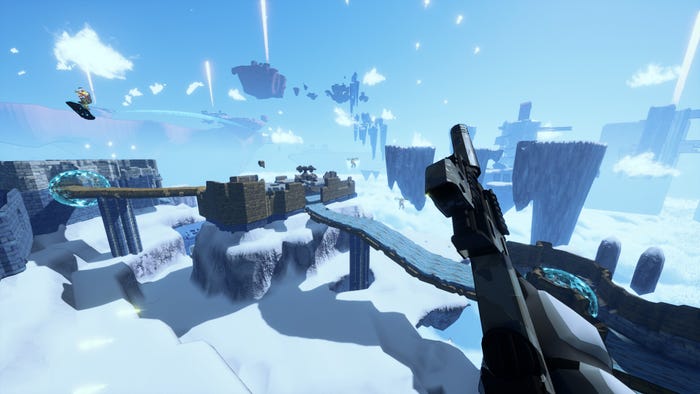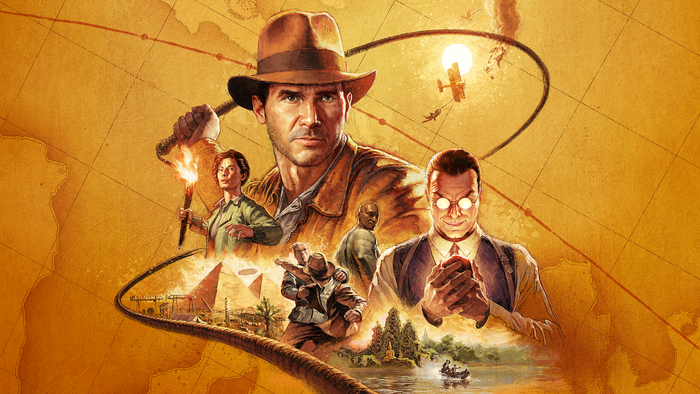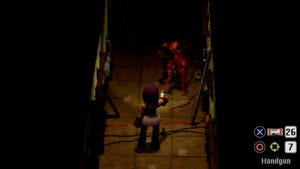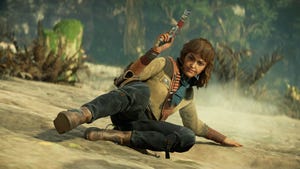
Featured Blog | This community-written post highlights the best of what the game industry has to offer. Read more like it on the Game Developer Blogs or learn how to Submit Your Own Blog Post
Thinking Green: An Anno 2070 Analysis
City builders have largely kept to either modern day or historical environments. With Anno 2070, the jump to the future gave the designers a chance to expand on the game-play in several ways.

City builders have largely kept to either modern day or historical environments. With Anno 2070, the jump to the future gave the designers a chance to expand on the game-play in several ways.
I've always been a fan of the city builder genre, as I've enjoyed the multi-tasking and the splendor of watching a fully developed city. These past few years however have not been too kind to the genre with no information about a Sim City 5 and the closure of Tilted Mill have left us city builders with few options. With Anno 2070, not only is it one of the most polished city builders I've seen, but the changes under the hood do a lot to make it rise above other games in the genre.
From start up, the game's setting and plot are integrated into the menus. As the title states, it's the year 2070 and global warming has lead to the polar ice caps melting and the world has begun to flood. Many coastal cities have already been submerged and the ecosystem is changing. You control a ship called an Ark, which has the technology and tools on board to create settlements for the human race. There are three groups vying for control: The Eden Initiative, Global Trust and S.A.A.T and how you build your cities help determine the state of the world.
As in Anno 1404 (or in the US: Dawn of Discovery,) Anno 2070 comes with the usual suspects of game modes: Campaign, continuous, scenario along with multiplayer. The difference is how everything is wrapped into this global meta-game. Every few days a global vote takes place to decide what group's plans is enacted and every player gets a say. The agreed upon plan becomes a global modifier that affects your city building in either scenario or continuous play. Daily missions pop up that allows the player to make career points for a specific faction, which plays into unlocking rewards on your profile.
As for the actual gameplay, things are both new and familiar in 2070. First, here is a quick primer for those completely new to the franchise. The Anno series is about managing economic growth with the use of trading. At the beginning of every map you have access to the lowest tier of buildings and the lowest class of citizens. As you meet their needs and more people move in, at certain population points, new buildings are unlocked. Once you have unlocked and met every need for that class of people, you can then upgrade their homes to the next tier, which also unlocks new buildings. The higher the class, the more they need to be happy, while still requiring the basics from previous classes.
Trade comes into play with how you have to move resources around. Many products require resources from multiple sources to be produced and effective supply chains are the name of the game. You can set up trade routes to transfer resources to and from your colonies which becomes a necessity as you go up in tier.
Playing into the future setting, Anno 2070 mixes things up from previous games. Besides worrying about your people and income, power and the environment are now factors in the world. Every non housing structure on your island requires power, and if you go into the red you'll suffer a productivity penalty until you create more power generators. Structures also have an effect on the environment and if the quality of the land goes down, your farms can suffer. However, you can build structures that positively affect the environment which in turn can give you bonuses in production.
Each faction has its own affect on the world. Eden buildings take up a lot of space, but hurt the environment less and their farms receives bonuses based on the environment, while the Trust using smaller more efficient buildings that do greater harm. S.A.A.T or the tech faction is the analog for the Orient faction from 1404 and are used to support the highest class of citizens of the previous two factions. Their buildings are mostly underwater based and players can set up mining colonies under the sea.
What sets S.A.A.T apart, is the concept of research, as you go up the tech tree for their faction, you'll unlock research buildings that allow you to spend money and resources to perform research projects. The projects range from providing you with warehouse buffs, to timed duration bonuses and even upgrades to your Ark which act as global bonuses.
As you can tell, there is a lot in 2070 to do and the inclusion of the Meta game helps tie the game elements together. As you play continuous games, any ark upgrades become stored on your ship and can be taken with you from game to game. This will allow you to get a head start with future games or make things easier for you. Research projects also persist across games allowing the player to keep their progress with unlocking them. With everything that needs to be digest I wish that the game went a little more towards helping the player learn.
The interface for 2070 is one of the most streamlined UIs I've seen for the genre; however this means that a newcomer will have to figure out all sorts of little icons and graphics to make sense of the game. The game's campaign is essentially the tutorial, but it doesn't feel like it does as good of a job as 1404's campaign did.
What made 1404's campaign work, was how it was focused on only showing the player a few mechanics each level to not overwhelm the player. At the start of a new map, the player is usually given a base city that has all the previously learned mechanics already established for the player, so that they can focus on what's new.
2070's campaign switches between the three factions throughout the missions making it harder to understand how progression works. The campaign is separated into three groups of missions, and within each group the player's city is transferred from map to map. While the concept is commendable, it can leave the player in a situation where they have developed their city in such a way that makes progressive maps harder. The help screen isn't as intuitive compared to 1404's help panel on the bottom right of the screen and takes the player to a separate screen which makes it harder to follow how the tips relate to what's happening in game.
As an example of the unintuitive nature of the campaign, the first time the player is introduced to drilling for oil, is the last map of the first group, where they must set up refineries using the tech faction. After that map, oil is not re-introduced until the 2nd map of the third group and this time the player is asked to use the Trust faction. The problem is that the game does not explain anywhere during that mission that the Trust can drill for oil on islands and where to check on the UI to make sure that it is possible to drill there. When the game asks the player to build more power structures or affect the environment, there is no mention on screen why the player should be performing those actions.
The other problems with Anno 2070 are the same ones that are inherent with the series, first, is that the game is sloooooooooooow (yes I had to spell it that way.) This is a game where the easiest scenario can take at least 8 hours to complete. For people looking for a game where they can just hop on and play for 15 minutes a day and make some headway, Anno 2070 is not for them. For all the complexities and depth of building your city, combat still doesn't feel as fleshed out as it could be. Anno 2070 introduces air units through the tech faction, but combat still feels like a side dish compared to the city building instead of being fully integrated.
Still, the campaign is just one part of an excellent game and the other issues fans of the series have looked past. Fans of previous Anno titles should snatch this one right up. For newcomers, I would suggest either trying out a demo or watching gameplay footage on YouTube so that you can have an idea of what you are getting into. The dynamic of introducing a Meta game of connecting progress and settlements together was a smart move by the developers and does a lot to expand upon the sandbox nature of the game. While the thought of the polar ice caps melting is not a pleasant one, I do look forward the time where we all have corn powered robotic servants.
Josh Bycer
Read more about:
Featured BlogsAbout the Author
You May Also Like









